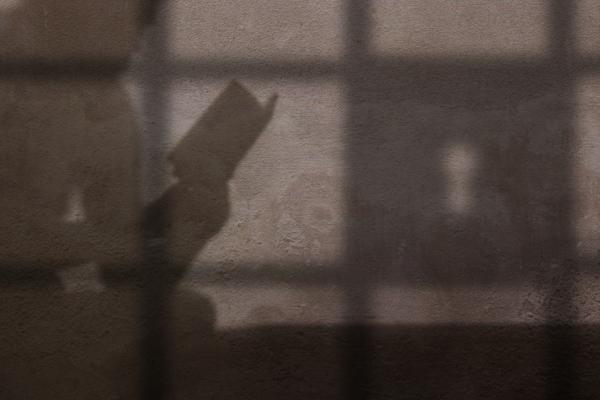Accompanying those who are alone or forgotten by society is foundational to the Catholic faith. As Catholics, we are taught that bearing witness to those who are incarcerated is a Corporal Work of Mercy.
Prison and jail ministry can look like visiting and offering spiritual guidance to those who are incarcerated. These forms of ministry are seen as nothing less than treating others as Christ would. Yet, as I continue to learn about the carceral state, my once simple admiration for prison ministry is evolving into something more nuanced. I see now that prison ministries based on visitation alone, without addressing root causes, merely allow the prison system to continue practices and policies that strip away the dignity of those experiencing incarceration. This is not something I believe is pleasing to Christ.
When I began my time at Harvard Divinity School, I considered using my degree towards becoming a prison chaplain. But the more I learned about the exploitation of incarcerated people, their families, and their communities, I realized the pursuit of this ministry must be done in a way that does not reinforce the prison-industrial complex. Instead, I feel that we as a faith community must work towards ultimately ending incarceration.
Jesus was radical not only because he walked with those deemed unworthy by society, but because he also questioned systems of oppression. His faith fearlessly allowed him to address those in power. It is with this spirit that Catholics need to address the devastating truth about incarceration, especially in the U.S.
It is well known today that the U.S. locks up more people per capita than any other nation. If you’re poor and/or black, your chances of being incarcerated are even higher. Black Americans, who only account for 13 percent of the total population, make up 40 percent of the incarcerated population. This devastating statistic is rooted in our nation’s founding sin of white supremacy, with a direct line easily discoverable in U.S. government policy between the injustice of Jim Crow to today’s mass incarceration.
The American prison system today is a new iteration of this long-standing white supremacist goal — to control and dehumanize people of color, the impoverished, the marginalized. Because of this, any form of prison or jail ministry rooted in Christian values must also address the injustice of mass incarceration, by advocating for early release, working to dismantle unjust systems of power, and pushing for a rehabilitative, not punitive, justice system.
Incarceration During COVID-19
This pandemic is the latest reminder that incarceration prohibits people from living a life full of dignity and life that appreciates family values. Being with family is crucial to Catholic Social Teaching. But, due to COVID-19, many jails and prisons across the nation are suspending visitations, preventing families from seeing each other face to face — a vital form of connection. This pandemic makes the distance between families that incarceration created grow larger.
Even more, many families who are facing financial difficulties during COVID-19 cannot afford a phone call to loved ones who are incarcerated — a simple act of mercy and human connection that should always have been free.
COVID-19 also highlights already existing public and mental health issues in prisons and jails that fly in the face of Catholic values.
This much is clear: As COVID-19 spreads through prisons and jails, it is a matter of life or death to get as many people out as we can.
I believe Christ would be using this moment as a chance to move the world from visitation to decarceration, a world in which prison ministry centers around advocating for early release and an end to the use of incarceration as a solution for societal ills such as poverty, addiction, and lack of education.
In these difficult times, there are many actions Catholics can take from their homes. Catholics are being asked to reflect on what prison ministry means and fight even harder for the incarcerated to be reunited with their families. Catholics can push lawmakers to reunite those currently incarcerated with their families. Governors have the ability to grant early release for those who are incarcerated; in States like California or New Jersey this is already happening, giving thousands of families a chance to reunite.
As I continue my theological studies, I am always asked to take more seriously what mercy looks like. I have been taught that theology, when done right, must translate teachings into actions. It must ask the faithful, what more can I do now?
As we face this time of social distancing and stay-at-home orders, to truly follow in the footsteps of Christ, we must dismantle those systems that would prioritize punitive separation of families ahead of public health and basic human dignity.
Got something to say about what you're reading? We value your feedback!







